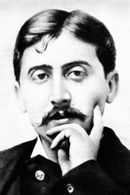Marcel Proust, a renowned French intellectual, author, and critic, is best recognized for his seven-volume novel, "In Search of Lost Time". This iconic work introduced the concept of "involuntary memory", also known as the "Proust effect", which has become a significant term in modern psychology.
Born Valentin Louis Georges Eugéne Marcel Proust on July 10, 1871, in Paris, France, he was the son of a celebrated doctor, Achille Proust, and Jeanne Weil, a member of a wealthy and cultured Jewish family. Proust's interest in art and literature was nurtured by his mother, who was fluent in English and exposed him to the works of Carlyle, Emerson, and John Ruskin, which he later translated into French.
From the age of nine, Proust struggled with severe allergies and asthma attacks, eventually developing a chronic lung disease that significantly impacted his life and career. Despite his physical limitations, Proust was blessed with a talent for writing and an inherited fortune that allowed him to focus on his craft without external pressure.
Confined to his cork-wood paneled bedroom for most of his adult life, Proust was attended to by his close friend and pianist, Reynaldo Hahn. During this time, he worked tirelessly on his magnum opus, "A la recherche du temps perdu", which spanned over 3,000 pages in seven volumes and featured more than 2,000 names.
Proust's novel is set in the fictional town of Combray, near Paris, and explores the lives of the upper class, delving into themes of nobility, sexuality, women, men, art, and culture. The novel's intricate complexity and delicate language were influenced by Proust's reading of Lev Tolstoy, particularly "War and Peace" and "Anna Karenina", and share structural and contentual similarities with Tolstoy's major novels.
Proust's novel was widely praised by notable authors such as Graham Greene, W. Somerset Maugham, and Ernest Hemingway, who considered it the greatest fiction of their time. Marcel Proust passed away at the age of 51 due to complications related to pneumonia and his chronic health condition on November 18, 1922, and was laid to rest in Cimetiére du Pére-Lachaise, Paris, France.
In commemoration of Proust's masterpiece, the town of Illiers, which served as the model for the fictional town of Combray, was renamed Illiers-Combray.























